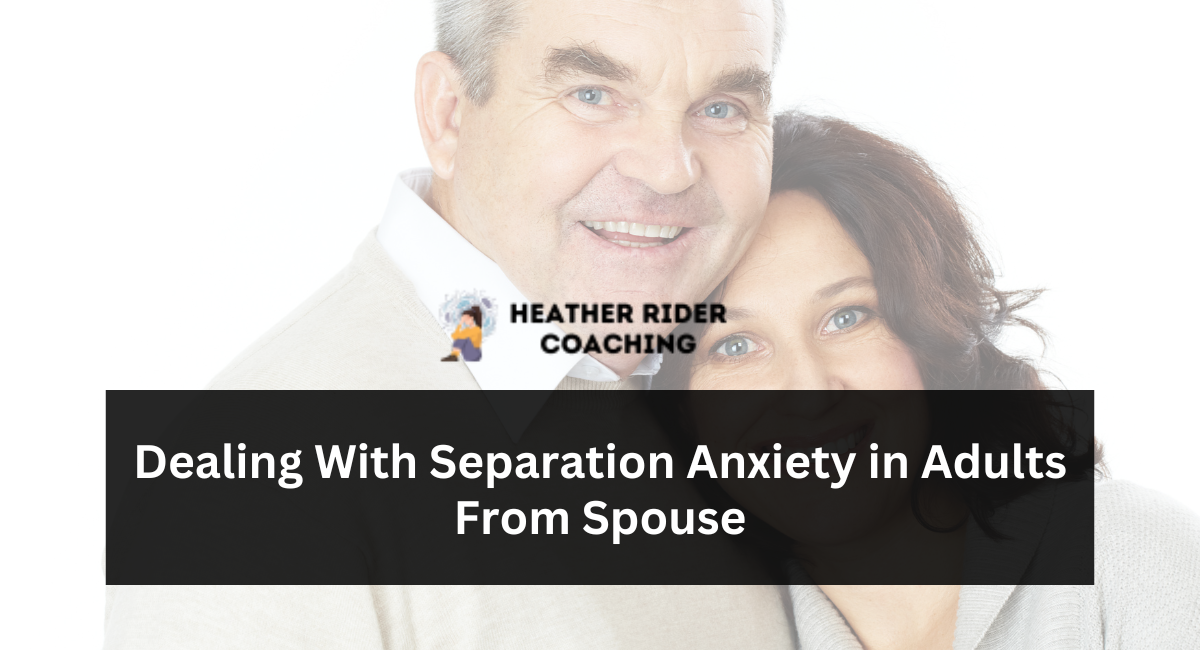If you have separation anxiety, you must seek help immediately. There are various strategies available that can assist with alleviating symptoms.
Begin by seeking therapy for anxiety. A therapist can help identify triggers and teach coping techniques to reduce episodes.
Self-care
Self-care practices can help to ease anxiety. These include exercising regularly, enjoying your favorite hobby, and engaging in meaningful activities such as reading or playing an instrument. Furthermore, practicing self-care means getting enough restful sleep and eating healthily.
Try to remember that anxiety is only temporary; it does not reflect on either you or your relationship. Remind yourself of other times when you had similar feelings and how quickly they passed over time. Join an online support group offering advice and encouragement; talking to someone can help identify and challenge irrational fears.
Maintain a journal to express your fears and anxieties, which has proven successful in mental health therapies and research studies. Writing down fears and anxiety helps relieve stress and anxiety; if symptoms become severe, consider seeking professional psychotherapy treatment – cognitive behavioral therapy (CBT) has proven particularly useful to adults suffering from separation anxiety disorder.
Therapy
Seeking professional counseling can be one way to overcome separation anxiety. People suffering from this condition often have a hard time being alone due to unhealthy attachment patterns established from early on in their lives or after experiencing major life changes such as moving or starting a new job.
People struggling with this condition should recognize that their fear is often unwarranted and based on emotions rather than facts, like knowing their partner will return home at the end of each day. Furthermore, they should strive to replace these unreal thoughts with more realistic ones based on facts, such as knowing your partner will eventually return home at nightfall.
If you are struggling with separation anxiety, BetterHelp offers online counseling solutions that connect you with licensed therapists who can assist in managing symptoms and improving relationships. Get started now with your journey through counseling by taking our free assessment and scheduling 60-minute personalized sessions!
Medications
Even though it is normal for children to experience anxiety when separated from parents or loved ones, if adults experience similar feelings when separated, they may require medical/psychiatric intervention. For a diagnosis to be made, symptoms must have been present for at least four weeks and caused significant impairment to daily functioning.
People with histories of trauma or previous anxiety disorders are at a higher risk for separation anxiety. Their risk increases if their support system is limited or if they have unhealthy attachment issues whereby they overly attach to one individual.
Adults suffering from separation anxiety often require a combination of treatments, including cognitive behavioral therapy and medications such as selective serotonin reuptake inhibitors (SSRIs). Mindfulness exercises may also help ease their feelings of anxiety. Furthermore, couples or family counseling sessions can teach individuals how to interact more efficiently and enhance overall quality of life.
Support
As someone experiencing separation anxiety can become overwhelmed with fear over the loss of loved ones, irrational fears can develop into real concerns over being left behind and threaten relationships by controlling behavior and breaching personal space. Seeking support to reduce this issue and its negative repercussions is essential.
Locate a friend or family member who will listen without passing judgment, or join an anxiety support group such as separation anxiety or general anxiety support groups to share experiences and learn from those experiencing similar feelings. Hearing what others experience can help show you why your fears may not be rational, giving an outside perspective and alleviating anxiety symptoms.
Another way of managing separation anxiety would be to focus on other relationships in your life. You should try setting a regular reminder on when and how often to text or call your partner not to overdo it – although setting some boundaries may help relieve some anxiety.
Conclusion:
Coping with separation anxiety in adults from a spouse involves acknowledging emotions, fostering open communication, and cultivating resilience. Building a support network, engaging in self-care, and seeking professional guidance contribute to navigating this challenging journey. Individuals can work towards managing and alleviating separation anxiety by prioritizing emotional well-being and maintaining connection in various ways.
